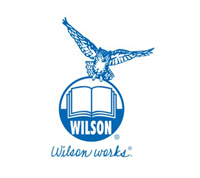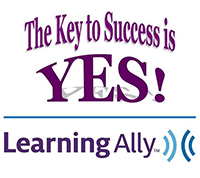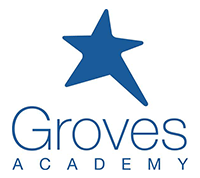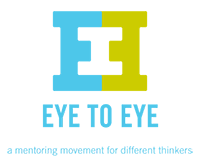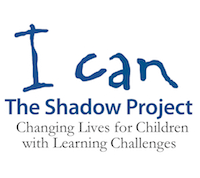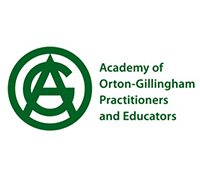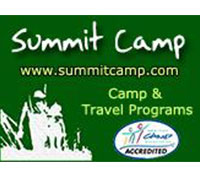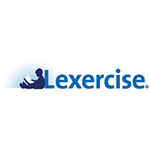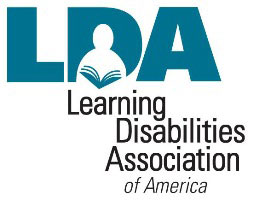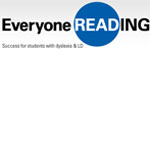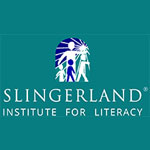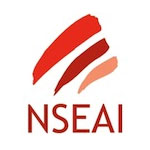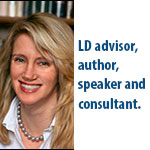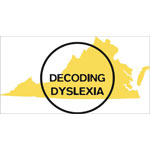About the Event
Spotlight on Dyslexia – the first virtual conference for parent on dyslexia, offers Learning Ally members and non-members an interactive educational experience, including real-time presentations with nationally recognized experts and parents, networking opportunities, and practical advice and resources. All you need is a computer and a high-speed internet connection to participate. And if you miss any presentations, registrants can replay from the archive.
• Click here to Run System Check
• Click here to View Technical Requirements
• Click here to View Port Troubleshooting
Login Help: For assistance, please contact your event host.
| Pre-session Block | Time |
|---|---|
|
Check out the lounge within the online environment. Here you can chat with other attendees privately or in group chats before the first session begins. |
8:30 AM (EST) |
|
There are a lot of great organizations in the exhibitor hall. Check out what they have to offer, ask questions, get advice and find products or services that may be what you need to help your child succeed. |
8:30 AM (EST) |
| Opening Session | Time |
|---|---|
|
Associate Director in the White House’s Office of Public Engagement , Taryn Williams will discuss the progress achieved in securing and protecting the rights of individuals with disabilities, especially in education, and describe some of the Administrations future goals. With the new Congress poised to address the reauthorization many long delayed education laws that touch individuals with disabilities Ms. Williams will describe some of the broad objectives of the Administration. |
9:00 AM (EST) |
| Session Block 1 | Time |
|---|---|
|
What does it mean to be a "different thinker?" Where can we find the full potential of our community? How can we make strides toward creating a world in which every learner is recognized? By sharing some of his own LD/ADHD journeys, Mr. Flink will provide answers to these questions. In doing so, he'll also provide a glimpse into the power of mentoring in the lives of different thinkers. At the core is a message of personal empowerment, academic success, and educational revolution for people who think differently. |
10:00 AM (EST) |
|
Parents and teachers of students with dyslexia need to provide them with more than just Orton-Gillingham based tutoring. Susan Barton will share tips and advice on student needs and things to be done in the classroom, and at home, so our kids can complete an O-G program as quickly and successfully as possible. |
10:00 AM (EST) |
|
What are Shut-Down Learners? How are they related to dyslexia and other learning disabilities? Major points to cover:
|
10:00 AM (EST) |
|
Dyslexia happens - hidden, unpredictable, hard to understand, waterlogging life's buoyancy. How to stay afloat? What develops resilience and sustains effort in the face of ongoing dyslexia-challenges? What unwitting ways undermine resilience? This session offers skillful means: what to say & do to stimulate strengths, willingness, and joy and what to refrain from doing and saying. In this joint venture, there are skills to learn and changes to make – on the part of parents, schools, and kids. |
10:00 AM (EST) |
| Break 1 | Time |
|---|---|
|
Check out the lounge within the virtual environment. Here you can chat with other attendees privately or in group chats before the first session begins. |
10:45 AM (EST) |
|
There are a lot of great organizations in the exhibitor hall. Check out what they have to offer, ask questions, get advice and find products or services that may be what you need to help your child succeed. |
10:45 AM (EST) |
| Break 2 | Time |
|---|---|
|
Check out the lounge within the virtual environment. Here you can chat with other attendees privately or in group chats before the first session begins. |
11:45 AM (EST) |
|
There are a lot of great organizations in the exhibitor hall. Check out what they have to offer, ask questions, get advice and find products or services that may be what you need to help your child succeed. |
11:45 AM (EST) |
| Break 3 | Time |
|---|---|
|
Check out the lounge within the virtual environment. Here you can chat with other attendees privately or in group chats before the first session begins. |
12:45 PM (EST) |
|
There are a lot of great organizations in the exhibitor hall. Check out what they have to offer, ask questions, get advice and find products or services that may be what you need to help your child succeed. |
12:45 PM (EST) |
| Session Block 3 | Time |
|---|---|
|
Executive function skills include the ability to manage time and attention, plan and organize thoughts and materials, remember details and multi-step problems, and initiate and complete tasks. Attendees will learn about multiple tools and strategies that can help students be more organized, including software, apps for mobile devices, and websites. |
1:00 PM (EST) |
|
Tracy Block-Zaretsky, Dyslexia Expert and Advocate
Kelli Sandman-Hurley, Dyslexia Expert and Advocate The IEP process, which involves a student with dyslexia, can be a maze of misinformation and misguided advice. Investing some time to understand the do's and don'ts of this process can make the difference between academic success and academic frustration for your child. |
1:00 PM (EST) |
|
Dyslexia creates a breakdown in attaining efficient reading and writing skills, requiring specific treatment. This session will explore an overview of the Common Core State Standards (CCSS) in relation to struggling readers. It will explore both the positive aspects of CCSS and important considerations necessary to assure that students with dyslexia can be successful in this new school environment. |
1:00 PM (EST) |
|
As an editor for two dyslexia and literacy publications, Cowen has a unique window into current trends and future directions in the field through topics such as DSM-5 Revision, dyslexia/literacy legislation, The Dyslexia Debate, dyslexia’s upside, reform to advance knowledge/practices among reading educators, and new media. In this session, she weaves various seemingly disconnected issues into a coherent picture to inform and sharpen efforts among various stakeholders concerned about dyslexia and literacy. |
1:00 PM (EST) |
| Break 4 | Time |
|---|---|
|
Check out the lounge within the virtual environment. Here you can chat with other attendees privately or in group chats before the first session begins. |
1:45 PM (EST) |
|
There are a lot of great organizations in the exhibitor hall. Check out what they have to offer, ask questions, get advice and find products or services that may be what you need to help your child succeed. |
1:45 PM (EST) |
| Session Block 4 | Time |
|---|---|
|
Lyn Pollard, Parent Advocacy Manager for the National Center for Learning Disabilities
Jenifer Kasten, Director of Advocacy, Decoding Dyslexia Arizona; Co-founder, Parents Education Network - Phoenix Affiliate As you learn more about your child's learning and attention issues, are you discovering more about yourself? Many parents of children with LD discover their own learning issues along their advocacy journey. How can parents of kids with LD tune into their own strengths and weaknesses to improve advocacy for their kids - and themselves?
|
2:00 PM (EST) |
|
Kelli Sandman-Hurley, Dyslexia Expert and Advocate
Tracy Block-Zaretsky, Dyslexia Expert and Advocate This presentation will answer the question, is there really such a thing as a ‘sight,’ ‘crazy,’ ‘red,’ or ‘demon’ word? If there is a perfect explanation for the spellings of words and how to pronounce (aka read) them would you want to share that with a student with dyslexia? This presentation will open your eyes to the regularity and structure of the English written language (orthography) while demonstrating how to introduce this to our very bright students with dyslexia. |
2:00 PM (EST) |
|
Are your children reluctant to write? Maybe they can't determine how to organize their ideas. Maybe they just can't get started. Maybe they don't know the words they want to use. These, and many more are often reasons why a student struggles to write. We will discuss dysgraphia and dyslexia and then go into some of the most useful strategies to help children of all ages get over their hesitancy when writing. We will be including some of the wonderful technology that is available. These strategies will be useful in a classroom setting or at home doing homework. |
2:00 PM (EST) |
|
Understanding language processing testing is a key component for serving as an effective advocate for your child. In this presentation, you will learn: |
2:00 PM (EST) |
| Break 5 | Time |
|---|---|
|
Check out the lounge within the virtual environment. Here you can chat with other attendees privately or in group chats before the first session begins. |
2:45 PM (EST) |
|
There are a lot of great organizations in the exhibitor hall. Check out what they have to offer, ask questions, get advice and find products or services that may be what you need to help your child succeed. |
2:45 PM (EST) |
| Breakouts Block 5 | Time |
|---|---|
|
Joanne Marttila Pierson, Language & Literacy Specialist
Lauren A. Katz, Language & Literacy Specialist For students with literacy/language disorder and/or learning disabilities, reading and digesting academic materials can be quite challenging, and this is particularly the case as students enter the middle and high school years. In this presentation:
|
3:00 PM (EST) |
|
Candace Cortiella, Director of The Advocacy Institute
Allison Hertog, Founder/Director of Making School Work, PL Parent Rights in the Era of RTI will include a parent-friendly presentation of these important aspects of identification of specific learning disabilities based on Response to Intervention:
|
3:00 PM (EST) |
|
In this session, two board members from Headstrong Nation, the national organization for adults who are dyslexic, will share insights on how to talk about dyslexia with a child, discuss the strengths and weaknesses that come with this profile, and create change in your community around this issue. The presentation will draw on the material in Ben Foss' book, The Dyslexia Empowerment Plan and will help participants:
To learn more about Headstrong Nation, visit www.headstrongnation.org |
3:00 PM (EST) |
|
Learning math is not the first choice for many students. While many people find math exercises boring and rote, children with learning differences can find math nearly impossible to engage with, as it tends to signal "failure". This seminar will go over strategies that work to engage and motivate students, and how we deal with the "Lazy Child". Learn how you can make assignments (even long ones) feel like fun. Learn how to talk about errors and create an environment of success. |
3:00 PM (EST) |

